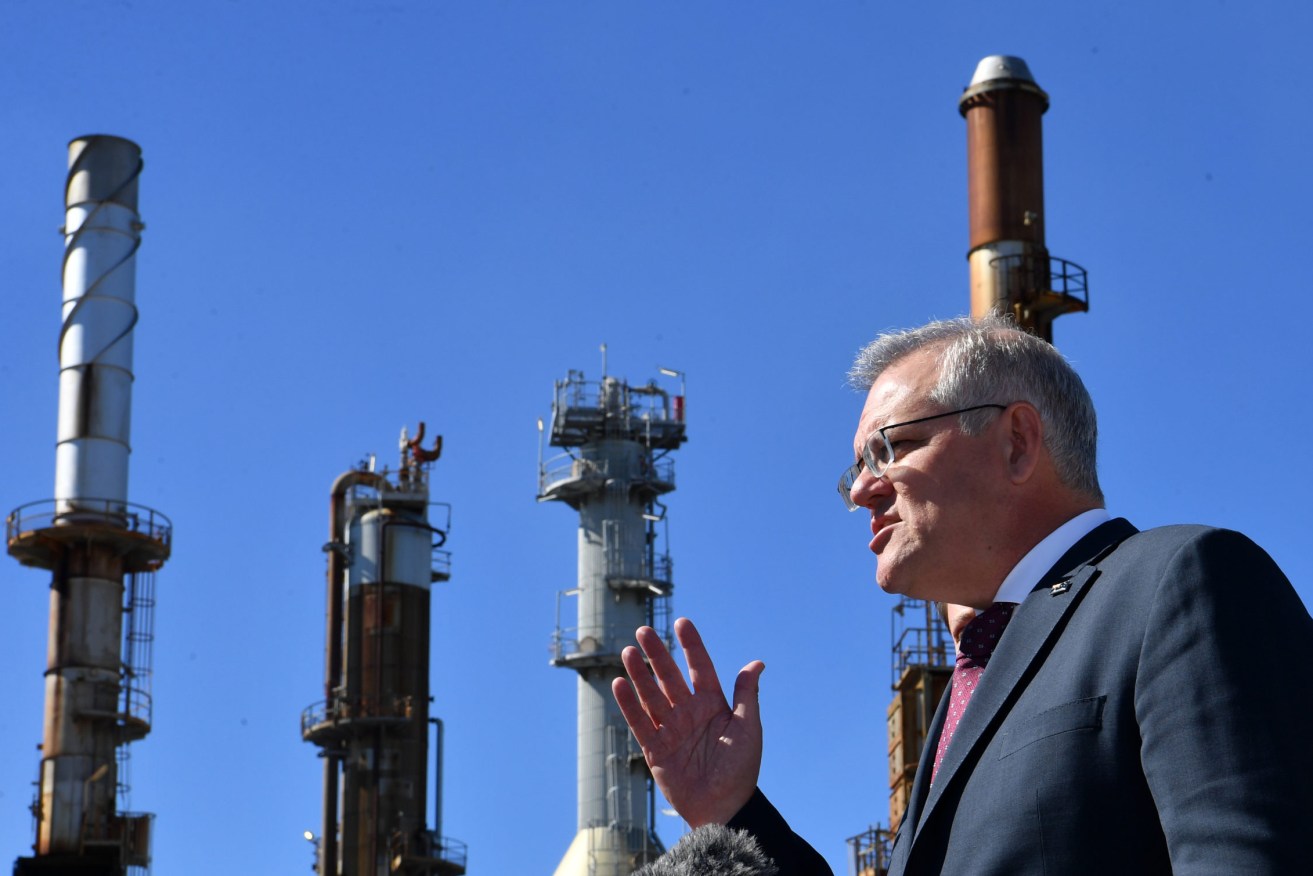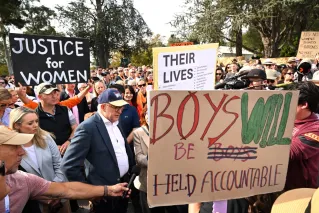Show me the money: Welcome to the new golden age of corporate welfare
The Federal Government is paying out up to $2 billion to keep Australia’s last two oil refineries running. It’s what happens when governments get desperate and companies know how to play the game, writes Robert MacDonald


Prime Minister Scott Morrison the Ampol Lytton Refinery in Brisbane, which has staged a remarkable turnaround in the past 12 months. (AAP Image/Darren England)
COVID-19 has sparked what could become a new golden age of corporate rent seeking.
Just weeks ago, Qantas successfully shook out untold millions of dollars from state governments with the crude tactic of threatening to move jobs interstate – in the name of post-pandemic cost savings.
And last week, Ampol and Viva Energy hit the jackpot with a federal government support package worth up to $2 billion to keep their oil refineries – the last two in Australia – operating until 2030.
They used the same tactic as Qantas: “pay us the money or we’ll shut down our operations”.
Ampol and Viva – unlike Qantas – had the distinct advantage of being able to cloak their corporate self-interest in patriotism.
Keeping the refineries open – Ampol’s at Lytton and Viva’s in Geelong – was all about Australia’s national security the parties to the deal insisted.
“This is a key plank of our plan to secure Australia’s recovery from the pandemic, and to prepare against any future crises,” Prime Minister Scott Morrison said.
“Shoring up our fuel security means protecting 1,250 jobs, giving certainty to key industries, and bolstering our national security.”
All of which is technically correct.
But it does raise the question; why is the government only acting now? Australia’s fuel security has been a slow-burning and increasingly urgent issue for at least the past two decades.
Australia had eight oil refineries at the beginning of the century, supplying about 95 per cent of country’s retail petroleum product.
Today the figure is down to barely 20 per cent following the closure of six refineries in last 15 years, knocked out of the market by far bigger and more efficient facilities in Asia.
Ampol’s and Viva’s six decade-old refineries were about to go the same way until the government, spooked by COVID-19’s disruptions to international supply chains and, presumably, growing regional tensions, finally decided it had to do something.
And good luck to Ampol and Viva. They obviously knew how to play the game.
Not only is the government promising to underwrite the refineries’ earnings, but also, it’s paying half the cost of expensive infrastructure upgrades to produce cleaner fuel. (Australia currently has some of the dirtiest fuel in the world, the worst of any OECD country.)
This $2 billion rescue package is terrific news for Ampol and Viva shareholders – share prices jumped after the announcement last week – but it barely addresses the issue of fuel security.
Locally producing 20 per cent of your petroleum needs is presumably better than none but the fact remains that most of the crude oil being processed in Australia is itself imported, following the winding down of the Bass Strait fields.
In other words, propping up the refineries for a while longer doesn’t solve international supply chain problems.
In addition, all this package does is kick the can down the road to the end of the decade, when the two refineries will, presumably be even less internationally competitive than they are now.
And finally, Ampol at least, doesn’t sound completely committed to the whole idea.
It’s given itself a big out clause.
“Ampol retains the option to pursue conversion to an import terminal should the package not be successfully legislated or, in future, in the case of persistently low refinery margins or other adverse events, including potential changes to the (revenue underwriting package) by future governments,” the company said in its release announcing the deal.
But still, that’s how successful corporate shakedowns work – you convince the government it’s in their own best interests to help you out.
And what better time to do it than in the wash-up of a global pandemic when lots of the old rules have been thrown out and in the months before the next federal election?
Imagine the government trying to explain to voters how it managed to let Australia become completely reliant on imported fuel at precisely the time it was making a big thing of our need to become more self-reliant.
To say nothing of the thousands of jobs lost in Brisbane and Geelong, just in time for the election.
This outburst of corporate rent-seeking might just be a coincidental blip but in this new age of government largesse and the ever-pressing political need to be seen to be doing something, I’m sure we’ll be seeing more of it.
Companies hoping for a government handout would be mad not to give it a try, as long as they remember to argue it’s in the national interest.












